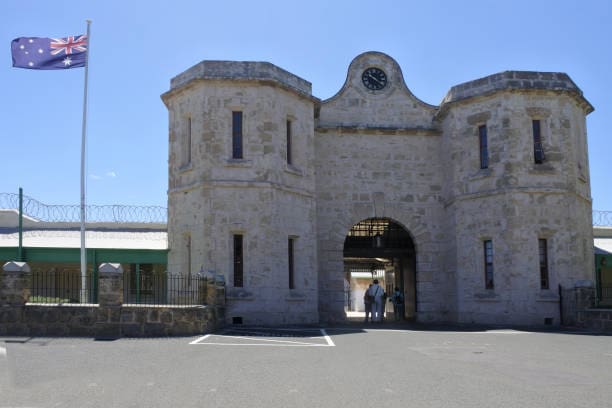What is parole? In Australia, parole is a system of supervised release that allows eligible prisoners to serve the remainder of their prison sentence in the community under specific conditions.
Its aim is to facilitate the rehabilitation and reintegration of offenders into society while maintaining public safety. Either a parole board, or authorities can grant parole. They evaluate the suitability of prisoners for release and set the conditions that prisoners must meet during the parole period.
What Is Parole? Stages of the Process
The process in Australia involves several stages. Firstly, an offender becomes eligible for parole after serving a portion of their sentence, known as the non-parole period. The non-parole period is determined by the sentencing judge and varies depending on the seriousness of the offence.
Once that period is complete, the offender can apply for parole. Authorities assess the suitability of prisoners for release by considering various factors, including their behaviour in prison, engagement in rehabilitative programs, risk assessment, and potential for successful reintegration.
They also take into account the concerns and input of victims and the community. The decision to grant parole is made on the basis of the principle of protecting the community while providing opportunities for rehabilitation. A parole hearing may be applicable.

Purpose of Parole
The purpose is to support the offender’s reintegration, address their specific needs, and reduce the risk of reoffending. Officers play a crucial role in the supervision and support of parolees.
They monitor compliance with conditions, provide guidance and assistance, and facilitate access to resources and services that promote successful reintegration. These officers also collaborate with other agencies, such as housing providers, employment services, and mental health professionals, to address the various needs of parolees.
Duration
The duration of the parole period varies depending on the individual case and the remaining length of the sentence. In some instances, offenders may be placed on parole until the expiration of their sentence, while others may have a specified period followed by a period of post-sentence supervision.
Violation of parole conditions can result in the revocation of parole and the return of the offender to custody.
What Is Parole? Conditions
The conditions in Australia vary depending on the individual case, the nature of the offence, and the risk assessment of the parolee. The specific conditions are determined by authorities or boards and are aimed at supporting the offender’s rehabilitation and ensuring public safety. While the conditions may differ, here are some common examples of conditions in Australia:
- Reporting: Parolees are typically required to report to their assigned parole officer on a regular basis. The frequency of reporting may vary depending on the parolee’s level of risk and progress in their rehabilitation.
- Residence: Parolees may be required to reside at a specified address or within a particular geographical area. They must seek permission from their parole officer before changing their residence.
- Curfew: Some parolees may have a curfew imposed on them, restricting their movement during specific hours of the day. This condition is often used to monitor and control the parolee’s activities, particularly during high-risk periods.
- Employment and Education: Parolees are often required to seek and maintain lawful employment or engage in educational or vocational training programs. This condition aims to promote stability, skill development, and financial independence.
- Treatment and Counselling: Depending on the needs of the parolee, they may be obligated to participate in various treatment or counselling programs. These can include drug or alcohol rehabilitation, anger management, or mental health support.
Other Conditions
- Drug and Alcohol Testing: Parolees may be subject to regular drug and alcohol testing to ensure compliance with sobriety requirements. Positive test results or refusal to undergo testing can lead to consequences or further intervention.
- Association: Parolees may be prohibited from associating with certain individuals, especially those involved in a criminal offence. This condition is designed to reduce the risk of reoffending and exposure to negative influences.
- Travel Restrictions: Parolees may have restrictions on their travel, particularly interstate or overseas. Prior approval from the parole officer is usually required for any travel plans.
- Weapon Possession: Parolees are generally prohibited from possessing firearms or other weapons during the parole period. This condition helps ensure public safety and minimise the risk of further harm.
- Compliance with Laws: Parolees must adhere to all laws and regulations while on parole. Any new criminal activity or violation of the law can result in parole revocation.
Parole authorities assess the specific needs and risks of the parolee, and the conditions aim to address those factors while promoting successful reintegration into society and reducing the likelihood of reoffending.

Seek Advice from Criminal Lawyers
Australia’s parole system aims to balance the principles of punishment, rehabilitation, and community safety. It recognises that not all offenders need to serve their entire sentences in prison and that successful reintegration can contribute to reducing recidivism (tendency to reoffend) rates. However, public safety remains paramount, and authorities make decisions after careful consideration of the risks and potential benefits.
In recent years, there has been ongoing debate and reform efforts in Australia’s parole system to enhance its effectiveness and responsiveness to changing needs and circumstances. These reforms aim to strike a balance between providing opportunities for rehabilitation and protecting the community, ensuring that the parole system continues to evolve and adapt to promote safer communities.
For more information, do not hesitate to speak with our experienced criminal law solicitors. Contact us today.
